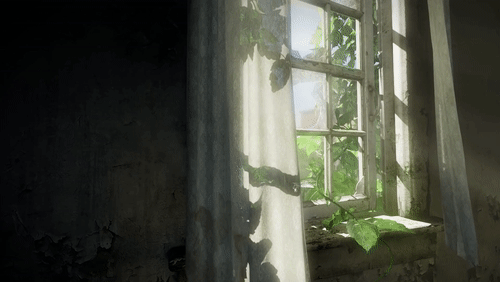The genre
It can’t have escaped anyone’s notice that cultures the world over have become increasingly intrigued by the notion of dystopia. The horrors of the first half of the 20th century – let’s recap some of it: World War I (the war to end all wars); 1918 flu; 10 years of giddy creative euphoria the excesses of which led inevitably to; the Great Depression; and in our desperation to be free of that we embraced Hitler, Stalin, Mussolini, Franco, and watched in horror (but not disbelief) as they murdered 10s of millions of civilians and started World War II; and let’s not forget The Bomb – so, yeah, small wonder then that writers like George Orwell were inspired to write the archetypal dystopian novels that formed the rich soil from which more modern dystopian fiction has sprung.
Personally I’m a fan of the genre – parts of it, anyway. Big fan of both Blade Runners; and The Matrix (number 1) blew me away. Avengers Endgame began dystopic, and it was great. I’ve mentioned Girls’ Last Tour already, which starts out almost as dystopic as you can get, but then in a very weird way descends even further – in fact, all the way. (So, it’s odd, but really, think about it: dystopia requires elements of humanity struggling against heavy odds to be worthy of the name; once humanity is gone, it’s not dystopia anymore. Put a colony of humans on the surface of Mercury, and you’ve got instant dystopia. But until then, it’s just a rock in space.)
And then there are the immersive computer games. Fallout 4 could hardly be more dystopic, but in my opinion it is surpassed by The Last of Us, which even when finished – when won, as it were – leaves one with a feeling of hopelessness. There is no real victory in that game. (Not sure I’ll play The Last of Us 2 when it comes out; the creeping dread of number 1 lingers still. As an antidote to dystopia I’m now playing No Man’s Sky, and while one can “die” in the game, that requires some ineptitude; once one learns how to avoid that, the game is all about space exploration, building bases, and … sure, it gets repetitive, and there are hints that you may only be a computer simulation, but I’ve taken the Blue Pill, and for now I am content; I’ve just entered galaxy number 4 (the game is to all extents and purposes infinite).)
All bets are losers
Many people harbor dark thoughts about how the world – or even just civilization – may end. What passes for science on television these days spends more time discussing how your daily routine might be disrupted should the earth fall into a black hole … pfft. You know, in the early days of the public tv science series, NOVA, as a poor graduate student I sometimes showed my support by sending them a check. However, although better able to afford such philanthropy now, I no longer do so. Maybe it’s me – which I doubt – but the density of real science information on the show has diminished over the years. It has become lurid, more likely to discuss death by tsunami, earthquake, asteroid, venom, disease – whatever – and all backed up by musical scoring more appropriate to the MCU than … Anyway, I’m more crotchety than I was as a graduate student, so maybe it is just me. Pfft.
So, the point is there’s a steady stream of apocalypse in our lives now, and my significant other (and, whoa, she’s very significant indeed), myself, and a couple of our friends, have a friendly wager going on as to how the apocalypse will come about. We’ve labeled the subsequent dystopic ages of humanity according to cause. For example, the Dougocene is caused by anthropogenic environmental decay, assumed to lead to the loss of much of what makes life worth living now, like Paris cafes (which covers about 90% of what I’d miss most). Wars, and other human on human acts of communal violence, might lead to the Denisocene (she’s not really playing, but we’ve given her this honorary -ocene just because she’s a friend). The scariest -ocene is the Suzocene, arising from fucking microbes.
The last -ocene is the Geocene, which is mine. You know how in Harry Potter they have this game, Quidditch, played on flying brooms? And the majority of players are flying around making points in what is essentially aerial basketball? And how none of their points ultimately matter because there are special players, one on each team, who are trying to locate the elusive Golden Snitch, and whichever of these players manages to catch the Snitch – well, their team instantly wins, so what was the point of all that flying basketball? You know what I’m talking about? Well, the Geocene is the Golden Snitch of apocalyptic events. These include all nonbiological catastrophes, like a comet impact, or the eruption of the Yellowstone super volcano. Of course, the Geocene needs to be careful; in particular, an asteroid impact runs the risk surpassing dystopia and turning the earth into just a rock in space – or several rocks. In that case I’d have to surrender my -ocene trophy and declare the game winner-less; then head to a Paris cafe to mope on the unfairness of it all.
No one expects the Spanish Inquisition!
It’s all good fun until someone gets hurt. I mean, ideally one wants to be on one’s deathbed, and minutes before expiring learn that shortly after demise the apocalypse will commence. That’s the ideal apocalypse.
In a previous blog post I mentioned the curse: “May you live in interesting times.” I also mentioned that upon first encountering the phrase I did not understand it to be a curse; I did not understand that “interesting” was a euphemism for disruptive upheaval, like either of the world wars, or the Spanish flu of 1918, or the plague of earlier ages … or the Fall of Rome, or … well, that word, “interesting”, I was all like, yeah, man, lay it on me; I like being interested. Alas …
Asinine animal husbandry practices, in a country I shall not name, have given rise to yet another global viral infestation, and this one is offering an unpleasant foretaste of dystopia – of Suzocene. SWMBO and I had planned a springtime trip to Paris and Milan. Now we’re leaning towards checking out the cafe scene in uninhabited portions of Canada.
I was born after WWII, and I experienced the Cuban missile crisis, which left my grammar school aged brain unfazed. My life was not disrupted. The neighborhood kids still played (literally) sandlot baseball. Or hockey on Johny’s Pond. In short, my entire life has left me comfortably inured to the notion that the heavily disruptive, “interesting”, times through which my ancestors may have lived – well, that was all in the past, relegated now to history books, and movies. Like most people, I did not expect the Spanish Inquisition.
The universe uses irony
So, one of the -ocene friends has a Star Trek calendar. Each month has a picture drawn from some episode of original Trek. It is now March, 2020, and this month’s picture is from the episode in which disease has ravaged a planet, leaving only children to carry on. This is disturbingly ironic, given that this present viral pandemic is over 10 times as likely to kill Boomers as Gen Alphas (if that’s what those younger than Gen Zs are to be called). As to me, although in many ways I have the intellectual and emotional depth of a ten year old, I doubt that the virus will take that into account. Damn it.
Nerds on alert
In an effort to slow down the progression of the infestation, events worldwide that were expected to attract large gatherings of people have been canceled. MIT – as tech savvy an institution of higher education as imaginable – decided to shift to online learning. Many other universities and colleges have followed suit, including where I got my PhD (I get emails), and where SWMBO (oh, come on: She Who Must Be Obeyed) is a professor.
Closer to home, while I am retired and unlikely to attend physics conferences anymore, should I even want to now, it is presently even more unlikely, because they’re being canceled in droves. Still, my blogs on physics and physicists, you may have noticed, have not been commendatory, and this enforced physics community “time out” cannot help but benefit in the long run. They should all sit in the corner and think about what they’ve done – and failed to do. And why.
Just seconds ago this notification from Bloomberg flashed atop my iPad: “Coronavirus Will Change How We Shop, Travel and Work for Years”. This, ironically, may lead to the threat of Dougocene (anthropogenic environmental disruption) being diminished. Satellites have detected reductions in pollutants in many places in the world. So, Suzocene and Dougocene, while both can ultimately be laid at the feet of overpopulation, the former is likely to diminish the latter, whereas the latter could enhance the former. Anyway, just saying.
On the bright side (ok, but less dim, anyway), the reputations of science and scientists (non-physicists), which have been in decline over the last couple of decades, should improve as the many-headed come to realize that their safety may be in the hands of nerds. Prayer might work, but my money is on nerds.


